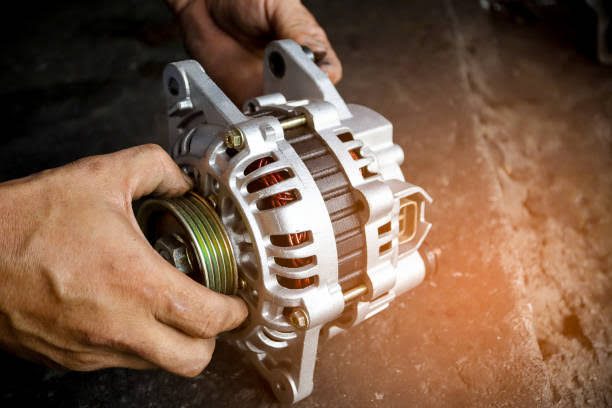Electrical problems in a vehicle always occur at the worst possible time. One day the headlights look a little weaker, the next the dashboard lights flicker, and before long, the engine refuses to turn over. While many people are quick to suspect the battery, the real issue often lies with the alternator. However, picking a replacement is not always as easy as some may think.
With different sizes, power ratings, and build qualities, choosing the right car alternator requires more than a quick glance at price tags. It is more about understanding what your vehicle demands and finding a unit that matches those needs.
Know Your Vehicle’s Electrical Requirements
Every vehicle is designed with a particular electrical load in mind. That is why the first step is to look at the manufacturer’s specifications. These give you a reliable baseline for amperage output and mounting style. If you are driving a standard, unmodified vehicle, sticking with an original equipment (OEM) replacement is usually the safest option.
Things change when you add extras like auxiliary lighting, a high-powered sound system, or other aftermarket accessories. Those upgrades draw additional current, and an alternator with higher output may be necessary to keep everything running smoothly. Under-sizing the alternator risks power shortages while oversizing can generate heat and shorten its lifespan.
Consider the Amperage Output and Duty Cycle
Alternators are rated by the amount of current they can supply, expressed in amps. A typical daily driver may only need 65 to 100 amps, but modified vehicles or those that support constant electrical loads often require much more, sometimes upwards of 150 amps.
It is not just the peak output that matters, but also how the alternator performs over time. This is known as the duty cycle. A well-designed alternator maintains steady output under load without overheating, which is especially important for work vehicles, off-road setups, or fleet cars that can’t afford downtime.
Another detail worth checking is idle output. Some alternators produce significantly less current at low engine speeds. If you are stuck in traffic with the stereo thumping and fans running, a weak idle output could leave you short on power.
Mounting Style and Compatibility
Even within the same make and model range, alternators don’t always fit interchangeably. Variations in case size, mounting bolt positions, and pulley styles can make one unit suitable while another simply won’t fit.
Older vehicles may use V-belts, while most modern engines run serpentine belt systems. A mismatch here leads to slippage, rapid belt wear, and a noisy engine bay. While universal-fit or adjustable bracket units exist, they are better suited to custom builds. For everyday reliability, a direct-fit alternator made for your engine is the safer bet.
Choosing Between New, Remanufactured, or High-Performance Units
Replacement alternators typically fall into three groups. Brand-new units, built entirely from fresh components, tend to offer the best reliability but also carry the highest price. Remanufactured units are stripped down, inspected, and rebuilt with a mix of new and refurbished parts. They are a more affordable option, but can vary widely in quality depending on who is doing the rebuilding.
High-performance alternators sit in their own category. Designed with upgraded internals, they deliver more output, greater efficiency, and improved heat resistance. They are ideal for heavily modified vehicles, but unnecessary for standard cars where the extra capacity will never be used.
Takeaways
Two alternators with the same specifications on paper may perform very differently in practice. The difference usually lies in the quality of components like diodes, bearings, and voltage regulators. A bargain-priced alternator may save money upfront but fail prematurely, costing more in the long run.
Look for products that meet or exceed OEM standards, and choose suppliers known for their experience with auto electrical parts. A decent warranty is also a good sign of confidence in the product.

































